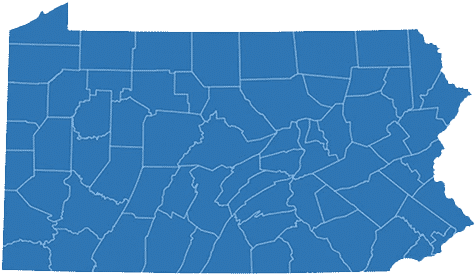What is bankruptcy?
Choosing Harold Shepley & Associates is a wise decision.
Bankruptcy provides individuals and families the fresh start they are looking for to take back their lives.
- Low payment plans
- Experienced bankruptcy attorneys
- Superior customer service
- Free consulatation
- No travel required
Let us help you get the relief you need.
Filing for bankruptcy relief is an important decision. You need an experienced bankruptcy attorney to help you make the correct decision. Everyone’s situation, income, and assets are different. We outline a plan of action for our clients based on their goals and the opportunities to reach those goals with the law.
Our legal help is affordable.
We keep the process simple.
Collecting all the information to ensure that your bankruptcy documents disclose all the information required by law may seem like an overwhelming task, but we have a streamlined approach to help you. Our attorneys and paralegals work with you and explain the process and law in terms to help you understand this whole process.
Got Questions? We’ve Got Answers!
Expert Video Guides on Bankruptcy & Legal Matters
Understanding legal and financial issues can be challenging, but we’re here to help. Our FAQ video library provides clear, expert answers to common questions about debt, bankruptcy, foreclosure, and more. Watch our attorneys break down complex topics into easy-to-understand explanations—so you can make informed decisions with confidence.
Most people that file bankruptcy are able to keep their possessions.
At Harold Shepley & Associates, our costs are all-inclusive.
- No hidden fees
- Lowest payment plans in the state
- Filing fees included
- Free consultation
- No travel required
- Harassing calls must stop
- Lawsuits cannot be filed or pursued
- Repossession activity must stop
- A foreclosure sale cannot proceed
- Utility shut offs cannot occur
It is a powerful tool for individuals facing difficult financial times.
Most individuals will attend one meeting with one of our attorneys and a Trustee assigned to their bankruptcy case. Currently, meetings are being conducted from the privacy of your own home via telephone or computer.
Chapter 7
- The shorter, quicker method to address your debt.
- Most of your unsecured debt is eliminated including, credit cards, lines of credit, deficiencies from automobile repossessions, personal loans, unpaid rent from former agreements, and medical bills, for example.
- Pennsylvania allows the choice between federal and state exemptions to protect property and most individuals keep their possessions, homes, and automobiles.
Chapter 13
- Requires a commitment to develop a payment plan to address past due debts for important property, such as a home or automobile.
- Consistent income that disqualifies a filer under Chapter 7 still provides protection under the bankruptcy law from creditor collection activity and provides a way to pay some of the outstanding debt and discharge any remaining balance.
- Provides an opportunity to keep some assets that would be surrendered if the filer was forced to file a Chapter 7 case.
Our clients typically attend only one meeting, called the Meeting of Creditors, during the course of a bankruptcy case. This meeting is a critical part of the bankruptcy case and it provides an opportunity for the Trustee to ask questions and review the assets, debts, and financial circumstances to determine whether the case should be permitted to proceed routinely. The meeting is scheduled by the Bankruptcy Clerk’s Office after the case is filed. It will be scheduled approximately 20-30 days after the case is filed.
Whether a case is a Chapter 7 or Chapter 13, the basic steps in the process are the same. Generally, a Chapter 7 bankruptcy case will take approximately 4 to 6 months from the date when the case is filed until the case is closed. A Chapter 13 case will typically last 36 to 60 months from the date of filing.
Yes and no. A bankruptcy case will eliminate debts such as credit cards, medical bills, personal loans, and past due utility bills. However, it will not eliminate your mortgage and car payments. If you want to keep the property, you will need to maintain the payments.

